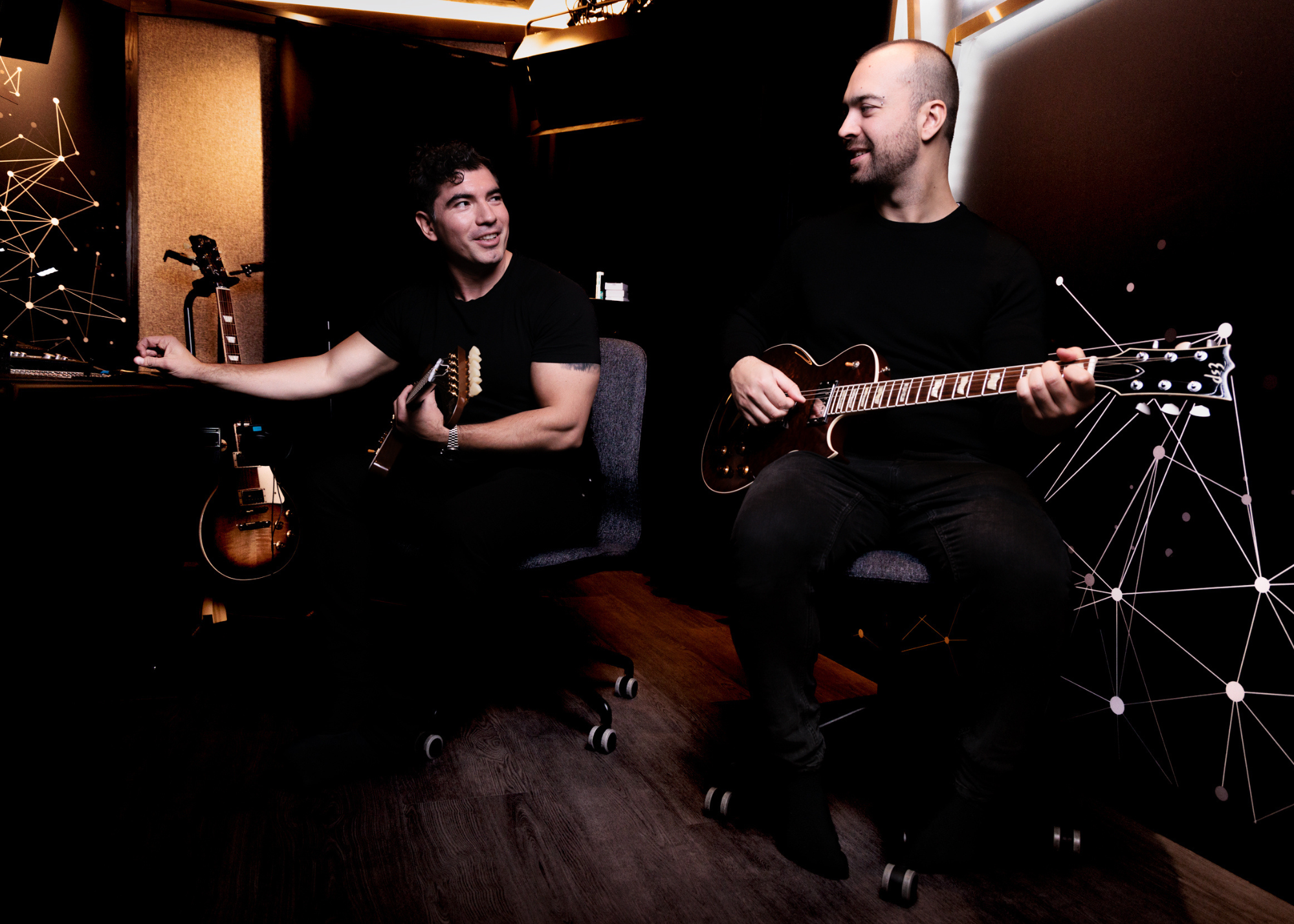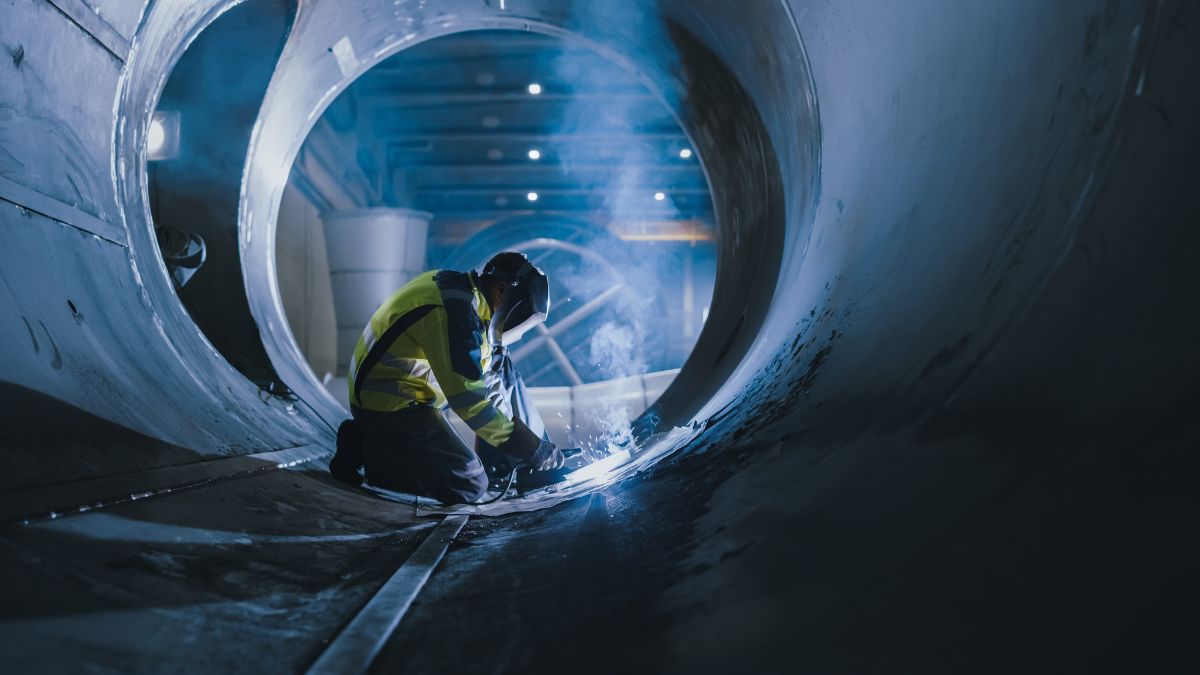In high school, Douglas Castro, co-founder and CEO of Neural DSP, was obsessed with Finnish heavy metal. So, when he won a scholarship to go on an exchange anywhere in the world, he – of course – chose Finland.
“I wanted to understand why this small country has so many amazing bands. My favourites include Children of Bodom, Nightwish and Stratovarius – the classics”, says Douglas Castro.
Castro couldn’t find an answer to his question, but he fell in love with Finnish culture and decided that one day he would live in the country permanently. In 2009, Castro had collected enough money to make the move from Chile to Finland possible, and in the same year, he already founded his first company in Helsinki.
Around the same time, Neural’s co-founder and Chief Product Officer, Francisco Cresp, followed a very similar path: He also came from Chile to Finland as an exchange student and moved to the country permanently eight years later. The duo’s paths crossed when Cresp started working at Castro’s company at the time, and in 2017, they decided to turn their shared passion for music into a new business.
Overcoming Challenges
Castro was already an experienced entrepreneur, as he had been running his hardware company since he was 23 years old. However, the new company was supposed to combine hardware with a completely new kind of software in order to bring digital sound processing to a completely new level. Cresp, on the other hand, was the one who had a better understanding of the software side.
Castro had the idea for the new product as early as 2015, but it ultimately took five years to make it possible.
“We use machine learning at the core of our algorithm, and our products are fully automated. This would not have been possible in 2015 since machine learning was not nearly as advanced as today, so product development turned out to be more difficult than we had expected,” Castro recalls.
Finally, the solution came in the form of two Aalto University students.
“One of our employees tipped me that his two student friends are working on an article about machine learning. It was about a technique that was just what we needed and one that has become almost standard in our field these days. I bought the two students dinner once a month for six months until they agreed to come work for us. I’m very persistent when I know what I want, and I think in the end they agreed just because they’d had enough of me,” Castro explains with a laugh.
Money was another challenge: Castro and Cresp knew it would take them decades to get to the point they wanted if they relied only on their own money, so they turned to venture capital investors. A connection was found with the Finnish-Estonian Trind VC, whose representative the duo met in March 2019. That same spring, Trind ended up making an investment.
“Neural DSP was an all-around interesting investment case. Growth has been incredible since the first year, and the founders are on their own level in terms of their determination and skills. I felt really lucky when I got to meet this duo; we would have been stupid if we hadn’t invested,” says Trind VC partner Kimmo Irpola.
“During the first meeting, I felt that Kimmo asked good questions and challenged our thoughts in a healthy way because what we were doing was really difficult. He wanted to make sure that we knew what we were getting ourselves into, and we really had to argue why our ideas were good,” Castro describes the meeting.
Quad Cortex Launches the Company Instantly to Great Popularity
In 2020, Neural DSP released their highly popular Quad Cortex device, a modelling effect processor, more commonly known as a pedal, and the interest in the device was huge. The next challenge was to keep up with the great popularity and demand.
“One of the best aspects of working with Trind has been that they trust us to know our field, and we, on the other hand, have been wise enough to listen to their advice when it comes to questions in which they are experts,” says Castro.
“On several occasions, a single phone call has made a critical difference. For example, when the Covidpandemic hit, we, like many other companies, wanted to raise a small emergency funding round. However, Taavi Lepmets from Trind advised that we are among those companies that can justify a larger financing round in this situation. It sounded counterintuitive to me that collecting a larger round would be easier, but that’s what we ended up doing. Luckily so, because otherwise we would have run out of money,” he continues.
In 2020, CapMan Growth led the new investment round, which enabled Quad Cortex to be included in the selections of music stores and to continue product development. In 2021, turnover exceeded 18 million euros.
Today, Neural DSP’s products are used by world-class stars and the firm’s goal for this year is a turnover of 45 million.
“It’s rewarding to see the world’s top names using our products. In my opinion, our coolest client is Megadeath, but if you ask my mom, it’s Coldplay. Also, Hans Zimmer has used our products in the Dune movie soundtrack, for example, as well as Justin Bieber’s guitarist – among others“, Castro recites.
A Combination of Music and Deep-Tech Geekery
But what makes Neural’s products so great? According to Castro, the digitisation of the devices makes it possible for them to be significantly smaller and cheaper than traditional music equipment – while the sound quality remains excellent.
“As a musician, how you play is important, but with electronic instruments, half of the equation comes from what the instrument is plugged into. Bands no longer have to carry around several heavy amplifiers and speakers when our one device does the same thing. This leads to savings in logistics and a significantly smaller carbon footprint on tours.”
As active music enthusiasts, Castro and Cresp themselves used to dream of this kind of technology.
“As part of the user base, we desperately wanted such products to exist. I myself have always been a nerd of the industry. I know which major companies have made it and which ones not from the 1950s onward, and I always made sure to understand what happened and why. I think that gave me a good instinct on what people want and how far to push and innovate. Francisco has an even better instinct, I would argue”, Castro ponders.
The same applies in the other direction: circles in the music industry are small, at the end of the day, and word of good products travels fast. According to Castro, most customers come to them, although the company has also invested in branding and creating a certain mystique around its products.
“We have sold our products worldwide since the get-go. The music industry is really small, which is both a challenge and an advantage, because you have to think globally. For example, we recruited internationally from day one and wanted to enable employees to work remotely from their home countries. When Covid struck, this was our advantage, when everyone else was just starting to learn the ways of working remotely.”
Everything about Neural DSP is a bit strange and unique, but the big picture works.
“I don’t know many companies in Finland that are able to combine this level of deep tech expertise with such a good understanding of the market and consumer needs. Neural is truly unique, and we are in no rush to exit for now,” Irpola sums up.
“At least we’re not a boring company! I also believe that our ability to utilize one of Finland’s greatest strengths, i.e. the high level of education and the talent of Aalto University students, has been key to our success. Currently, we are growing globally at a fast pace while making a profit and our goal is no more or less than a turnover of one hundred million“, Castro concludes.
***
The article is part of the Finnish Venture Capital Association’s and PwC’s Building Growth Competition of 2023 blog series, where we present the stories of the competition finalists. You can find more information about the competition on our website!

